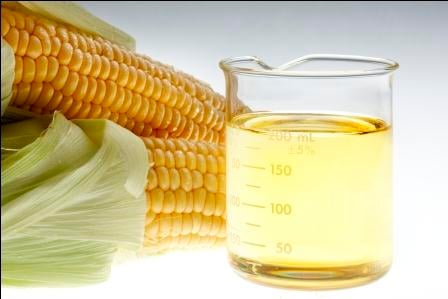How to Tell if Ethanol is Destroying my Vehicle
Here's a fact: Most gasoline that you're pumping into your vehicle these days contains some sort of ethanol concentration, typically 10 to 15...

So why does gas go bad? It all has to do with gasoline's chemical composition.
 Gasoline is a refined petroleum product designed to be volatile so it can be efficiently burned in a vehicle internal-combustion engine.
Gasoline is a refined petroleum product designed to be volatile so it can be efficiently burned in a vehicle internal-combustion engine.
The storage quality of gas is not what it used to be, primarily because of refinery cracking methods that are employed to maximize the most yield of gasoline out of each barrel of oil.
Here's a look at some of the effects of poor gasoline:
When hydrocarbons react with oxygen exposure, the chemical composition of the gasoline mixture effectively changes. Free radicals are produced that lead to oxidation and deposits in the fuel system that clog up the lines and filters and also impact other parts of the engine. The end result is an engine that operates inefficiently and will also likely need maintenance soon.
Most gas these days contains some sort of amount of ethanol. Ethanol has properties to where it's susceptible to drawing water molecules into the fuel from the surrounding environment. And water is detrimental to a fuel mixture as it has the tendency to cause hard starting and a poor running engine. It also has the tendency to cause rust in the fuel system which can lead to further engine issues.
As you can see, stale gas can lead to poor running quality, less mpgs and poor overall engine health. So how do you keep your car's gas from going stale? First, you can fuel up at a reliable service station, where you know you're getting good quality ethanol-free gasoline. Secondly, make sure that gas isn't sitting in your car. A good way to ensure that gas stays pure is to drive your vehicle often so that gas is continuously cycling through your engine. And last, and perhaps most importantly, administer a fuel additive to your fuel mixture. Additives work to remove ethanol from a fuel mixture so that you're getting the most pure mixture of gasoline possible.
Each of these has the potential to wreak havoc on an engine. Be sure you're taking the necessary measures to combat stale fuel. Some simple housekeeping can go a long way. And some simple, inexpensive products like fuel additives can pay off big dividends in the long run as well.
Photo Credit / Creative Commons / No Changes Made
Here's a fact: Most gasoline that you're pumping into your vehicle these days contains some sort of ethanol concentration, typically 10 to 15...

2011 was the year that people really started to realize how bad ethanol was for their vehicles and small engines. Repair shops around the country...

When you’re asking the question ‘how do I fix bad gas in my car’, you’re talking about a different kind of situation than fixing bad stored fuel...